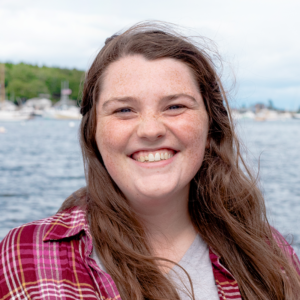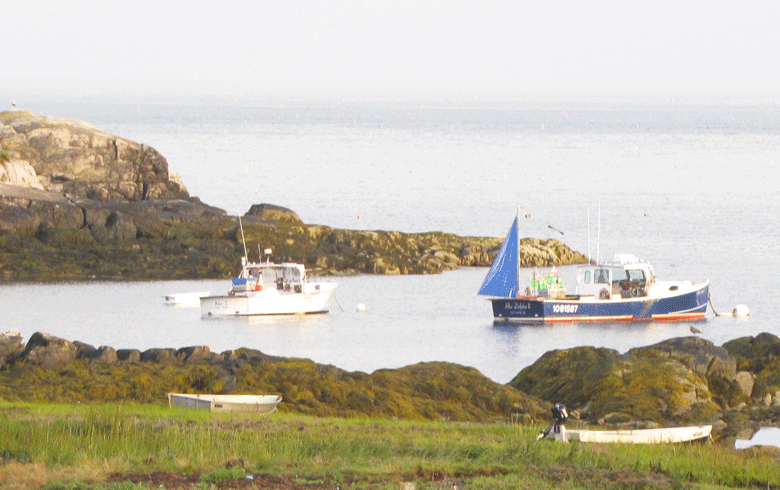Reflections is written by Island Fellows, recent college grads who do community service work on Maine islands and in coastal communities through the Island Institute, publisher of The Working Waterfront.
By Melanie Nash
I began my fellowship on Long Island a little over a year ago, at the beginning of September 2021. I have spent the past year watching the community here prepare for its future, largely due to my involvement in the Long Island Comprehensive Plan.
When I arrived on the island, my first task was to decipher the responses of the community survey and lead hot-topic forums for residents. Out of the feedback from the forums and the community survey, I worked on developing a data report that would shed light on islander priorities and help shape the content of the next plan.
The overall feeling from the survey data and community engagement was that people have a resounding desire to keep the island the unique and special place that attracted them here and keeps them coming back. Interestingly, this did not translate to “no change.” The overwhelming sentiment was that sustaining the character of the island that everyone knows and loves will require it to grow responsibly.
Sustaining the island way of life will take a tremendous amount of work and will require some carefully managed and thoughtful change.
There was acknowledgement that town government and residents have work to do. Sustaining the island way of life will take a tremendous amount of work and will require some carefully managed and thoughtful change.
After being on Long Island for the past year, the spirit of volunteerism stands out to me. People step up to work for the changes that they want to see in their community. Long Island relies on volunteers, some of whom receive small stipends from the town government, to do everything from governing the town to running committees like finance, planning, and the school board.

The town’s emergency services and wellness council and all community organizations that we depend upon for social engagement like the library, historical society, and civic association are all volunteer-run. This spirit of engagement and responsibility to the community you live in strikes me every time I set out on another fellowship work goal, and every time I attend a community event or am able to take advantage of town resources.
Over the past year, my work has shifted. The comprehensive plan passed unanimously at town meeting in May, and was officially submitted to the state at the end of the summer. The next step is to figure out the best ways to implement its recommendations and goals, many of which are already begun.
A groundwater quality committee was started last fall as the concerns about our water supply rose to the top of discussions in public forums. Long Island participated in the first steps of the resilience training program with the Gulf of Maine Research Institute and the Island Institute, starting to plan for climate impacts such as sea level rise. Broadband internet, the top strategic concern according to the 2021 community survey results, was installed on the island in spring and summer 2022.
There is so much good work happening and so much good work to come. One question in the community survey was “What is your greatest hope for the future of Long Island?” But responses also included “work,” “change,” and “build.”
The community is determined to have the island keep its character and its way of life while still allowing for planned growth, and I am grateful to be involved at such a transformative time. Last year, I got to work with the community to plan for its future. This year, I will be able to support and work with those who are already making change and planning for the future.
Melanie Nash works with the town of Long Island on a new 10-year comprehensive plan. She grew up splitting her time between Connecticut and the Pemaquid Peninsula. After graduating from Clark University with a degree in human environmental geography, she earned a master’s degree in marine affairs at the University of Rhode Island.





